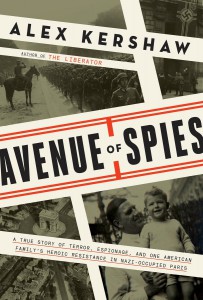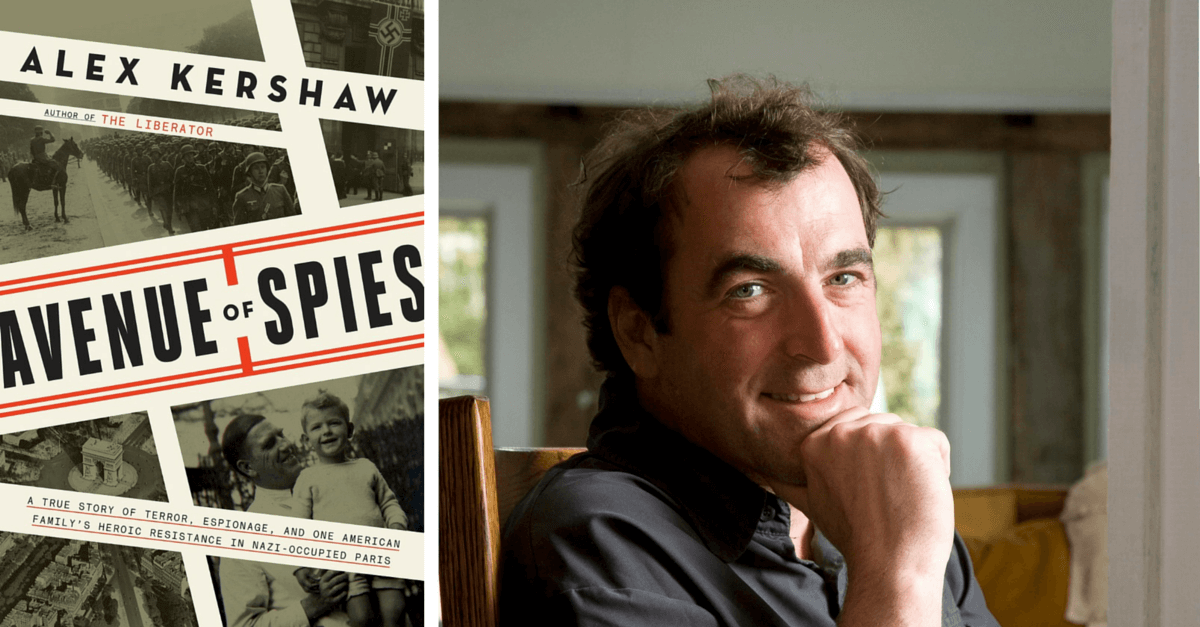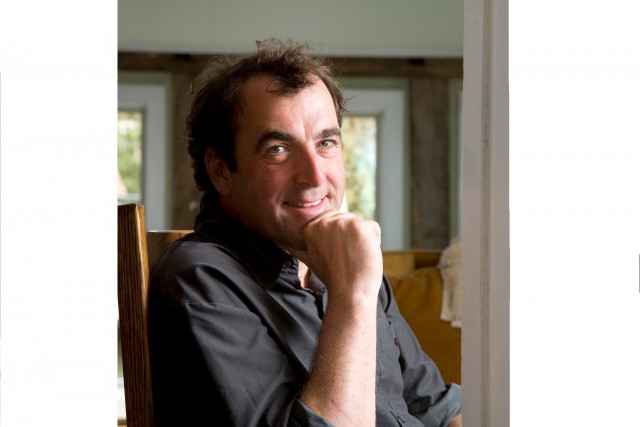A Conversation with Alex Kershaw Author of AVENUE OF SPIES
A True Story of Terror, Espionage, and one American Family’s Heroic Resistance in Nazi-Occupied Paris
Q. How did you first come to hear about the remarkable Jackson family?
A. I had been in Paris, my favorite city, and was determined to find a way to write about it so I could return as often as possible—at least for a couple of years! I considered writing about the liberation of the city in August 1944, but then I came across an interview with Phillip Jackson online. I was astonished by his story—the son of an American doctor who had joined the resistance. When, after a year of research, I discovered that he lived so close to the most murderous Nazis in France—his neighbors on Avenue Foch—I knew that I had a fabulous narrative. In telling the story of the Jacksons and their neighbors, I could tell the story of Paris under the Nazis, and indeed of any place where evil resides beside heroism. In the darkest of places—Avenue Foch in WWII—there was still a source of light, of hope and inspiration.
Q. You spent a great deal of time in Paris, searching through archives and records, and even interviewing Phillip Jackson and individuals who lived through the Nazi occupation there. Can you tell us a bit about the experience?
A. It was an experience I never wanted to end. I spent weeks wandering around Phillip’s neighborhood, visiting his childhood haunts, his old school, the places where he grew up. I explored the darkest corners of Nazi Paris: the restaurants the SS ate in, the addresses they used as torture chambers. I walked up and down Avenue Foch dozens of times, looking up at the top floor windows at number 84, where so many brave British spies had been tortured. I stood on the terrace at the American Hospital in Neuilly, where Dr. Sumner Jackson, Phillip’s father, had stood in 1940 as the Nazis approached Paris. I sat in the living room of Francis Deloche de Noyelle, the man who recruited the Jacksons to the resistance. I was also able to interview American airman Joe Manos, who, more than seventy years later, was still immensely grateful to the Jacksons for hiding him at their home and helping him to escape back to England. I was very much aware that I was in a race against time and that these key characters in my story might not live too much longer. And last but not least, I drank and ate as much as I could at Phillip Jackson’s favorite restaurants, a stone’s throw from Napoleon’s tomb. I’m still very sad it had to come to and end and I had to actually write the book!
Q. You’re an acclaimed World War II author and historian who has covered so many facets of the war; what drew you to Paris for your new book?
A. The romance, the utter beauty and sophistication of the place … the wonderful memories I had of the city and country as a child, at my happiest. It makes the heart sing. It is such an extraordinary place to be in, let alone write about. I have at times been able to truly live in the moment through my love of the French language and culture. Ever since reading Hemingway’s A Moveable Feast, I’ve wanted to base a book in the most sensual city on the planet. I count myself very lucky to have been able to spend three to four years of my adult life reveling in my great love of France. I think my passion for the period and the city comes through in the book.
Q. While you’re so well versed in the history and events of World War II, was there anything you discovered in the course of your research for AVENUE OF SPIES that you found particularly surprising or poignant?
A. Yes, many things surprised me. That people went insane because of the stress involved in being in the resistance. That cultured and educated men could so gleefully become mass murderers. That the British were so amateurish when it came to running spy networks in Paris. I was astonished at the level of sacrifice by those French who dared to resist, amazed that so many Jews could be rounded up in plain sight, in the heart of the most civilized city in the world, by French police and then sent to their deaths. And I was so profoundly moved and inspired by the heroism of the women of the French resistance—such wonderful, powerful, beautiful reminders that all that’s best about humanity is often revealed in the darkest times when the few resist even as the vast majority look the other way in the face of atrocity and injustice.
Q. AVENUE OF SPIES features an incredible cast of characters—diplomats, socialites, spies, SS agents. Can you tell us a bit more about some of the individuals you encountered?
A. On one of my visits to Phillip Jackson, now 87, the only child of Sumner and Toquette Jackson, who lived at number 11 Avenue Foch, I was able to have lunch at the hospital of Les Invalides, where he now lives. I suddenly realized I was in the same room as ten men and women who had fought so bravely, and paid such a high price, to defeat Hitler—the crème de la crème of the French resistance. I also spent a wonderful evening with Fritz Molden, high in the Austrian Tyrol. He died a week after I met him, and was feted in Austria as the country’s greatest resistance hero. He had been a close friend of a spy who had tried to save Toquette Jackson and many others from deportation, and he was a wonderful, brave, cultured man—a giant of the last century. There were many others, so many powerful experiences.
Q. The year 2015 marks the 75th anniversary of the occupation of Paris. What is life like today on the famed Avenue Foch? What has become of the Jackson home at number 11? And who now occupies the notorious number 72, where the Gestapo set up their base of operations?
A. The avenue is perhaps even more exclusive than ever. No Nazis that I know of, but there are a number of billionaires and several well-guarded embassies. I was asked to stop taking photos by a security guard outside one mansion. The Jacksons’ home at number 11, on the outside, has not changed at all. The black railings are still there. Number 72, the last time I looked, was empty and shuttered. Whoever chooses to live there in the future should perhaps not care too much about history or believe in ghosts!
Q. Is there a message you hope readers will take away with them after reading AVENUE OF SPIES and learning about the heroic efforts of the Jacksons?
A. Always resist oppression, no matter the price. Always fight back, no matter the cost. There are times when we have to take a side. The world will always be grateful to those who combat terror and extreme prejudice. I certainly am.

See more about Avenue of Spies on Amazon.com
Follow Alex Kershaw on Facebook

